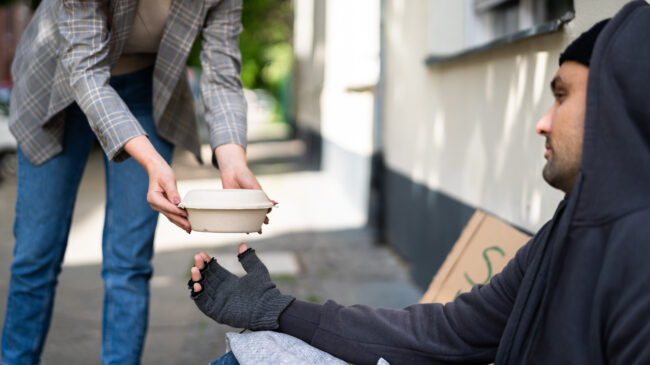Foraging for berries, nuts, mushrooms, fruits, seaweed and other wild foods has exploded in popularity in recent years. In Food Law Gone Wild: The Law of Foraging, my 2018 Fordham Urban Law Journal article, I define foraging as the act of searching for and harvesting wild foods for sustenance. While I’ve documented that the practice of foraging is gaining adherents, the easing of the Covid-19 pandemic—which forced many people indoors—appears only to have increased the popularity of foraging even more over the past year.
Juxtaposed against the growing popularity of foraging, though, is a number of stories about people who’ve faced legal consequences for harvesting wild foods. In fact, if you’ve ever picked a blackberry, apple, or dandelion in a park, there’s a very good chance that you broke the law.
In Food Law Gone Wild, along with my book Biting the Hands that Feed Us, I detail cases of people who’ve been fined for foraging on federal, state, and local public lands. These include an elderly Illinois man who was fined for picking dandelion greens in a Chicago-area park and another forager who was fined for picking edible berries in a suburban Washington, D.C. park.
If fining an elderly man for picking dandelions in a park sounds absurd, the origins of anti-foraging laws in this country are even worse. In the American colonial period, the earliest anti-foraging laws sought to push Native Americans off of lands desired by white settlers. After the Civil War, southern states established anti-foraging laws to prevent newly freed slaves from being able to provide sustenance for themselves and their families. Later, conservation advocates pushed anti-foraging laws in newly created state and national parks as a way of protecting land from rural white residents, who the conservation-minded urban elites viewed as incapable stewards of their own lands.
These laws, I told The Guardian in an article published last month on the renaissance of foraging in the Black community today, were grounded in colonialism, racism, and classism.
Today’s laws against foraging don’t exclude people explicitly based on their race and class. Rather, these laws typically rely on fantastical fears that foragers will damage or destroy plant life. But the racist and classist stain of those earliest anti-foraging laws remains. And, as the police murder of George Floyd and other such examples highlight, research shows the people most at risk when police enforce the law are people of color.
America is rightly taking a hard look at police tactics and selective law enforcement. But America has an overcriminalization problem. That means we should reassess not just the way police arrest alleged lawbreakers, but also reconsider many of the very laws that empower police to arrest people in the first place.
Overcriminalization has consequences. As I noted in a recent Reason column that highlighted the police injury and arrest of an elderly man who’d shared food with the homeless and others in need in his community:
Las Vegas, Orlando, Dallas, Houston, New York, Philadelphia, Birmingham, and San Antonio have banned people from sharing food with the homeless and less fortunate. Though public backlash and lawsuits have helped push back against some bans, this month’s events in Charlotte and Orange County show the need for continued vigilance and concerted efforts to eliminate such laws.
And, at a time when most Americans recognize the need for sweeping criminal justice reforms, the examples provided by Bokhari’s remarks and Lemly’s arrest also drive home another important point: because law enforcement necessarily involves employing the power of the state to arrest people—often, as in the case of Lemly’s arrest, through the use of physical force and violence—we shouldn’t adopt any law that isn’t worth using violence to enforce.
Rampant overcriminalization is why Yale Law School Prof. Stephen L. Carter, for one, cautions his students against “invoking the power of law except in a cause for which they are willing to kill.” That’s just one of many reasons criminalizing the sharing of food with the homeless and less fortunate is abominable. Instead of endangering and arresting good people who share food with the homeless and others in need, we should be celebrating their generosity.
When society criminalizes victimless activities such as sharing food with others in need or picking wild foods in a park, ultimately we choose consciously to require that armed police uphold and enforce those laws. Because the consequences of overcriminalization can be fatal—particularly, as recent history has emphasized, for people of color—we should eliminate any and all such so-called crimes from our criminal code. No one should face the risk of death simply because they picked a berry.

